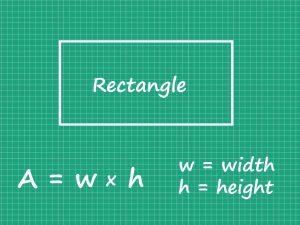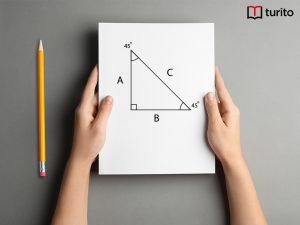Key Concepts
- Define quadratic function.
- Define quadratic parent function.
- Draw the graph of 𝑓(𝑥)=𝑎x2.
- Draw the graph of 𝑓(𝑥)=𝑎x2 when 𝑎<0.
- Interpret quadratic functions from the table.
- Compare the rate of change on the graph.
Exponential function
An exponential function is the product of an initial amount and a constant ratio raised to a power.

Transformations of exponential functions
Vertical translation of graphs
Algebra: f(x) = ax+k

Horizontal translation of graphs
Algebra: f(x) = a(x−h)

Polynomial
A polynomial expression is an expression that has constants and variables by means of addition, multiplication, and exponentiation to a non-negative integer power.

Factorizing x2+bx+c = 0
To the factor, a trinomial of the form x2+bx+c, find a factor pair of c that has a sum of b. Then use the factors you found to write the binomials that have a product equal to the trinomial.
Quadratic function
A function f defined by f(x) = ax2+bx+c, where a, b and c are real numbers and a≠0a≠0, is called a quadratic function.

Graph of a quadratic equation
The graph of a quadratic function is a curve called a parabola.

- The axis of symmetry intersects the vertex and divides the parabola in half.
- The vertex is the lowest (or highest) point on the graph of a quadratic function.
Quadratic parent function
The quadratic parent function is f(x) = x2. It is the simplest function in the quadratic function family.
- The quadratic parent function is f(x)=x2
- It is the simplest function in the quadratic function family.

Graph of f(x) = ax2
- For 0<|a|<1, the shape of the parabola is wider than the parent function.
- For |a|>1, the shape of the parabola is narrower than the parent function.

Graph of f(x) = ax2 when a<0
- f(x) = ax2 is the reflection of f(x) = -ax2 over the x-axis.

Compare the rate of change in the graph
- Find the slope of the line that passes through each pair of points.
- For positive intervals, the greater the value of a the greater the average rate of change. In this case, the ratio of the a-values in the two functions is the same as the ratio of the average rates of change.
Exercise
1. How does the value of a in g(x) = -4x2 affect the graph when compared to the graph of the quadratic parent function?
2. In which interval is the function increasing?

3. How does the value of a in h(x) = 0.15x2 affect the graph when compared to the graph of the quadratic parent function?
4. Write a quadratic equation for the area of the figure given. Find the area of the figure for the given value of x.
x=5

Concept Map
A function 𝑓 defined by 𝑓(𝑥) = 𝑎𝑥2 + 𝑏𝑥 + 𝑐, where 𝑎, 𝑏, and 𝑐 are real numbers and 𝑎 ≠ 0, is called a quadratic function.
The graph of a quadratic function is a curve called a parabola.

What we have learned
- A function f defined by f(x) = ax2 + bx + c, where a, b, and c are real numbers and a≠0, is called a quadratic function.
Related topics
Addition and Multiplication Using Counters & Bar-Diagrams
Introduction: We can find the solution to the word problem by solving it. Here, in this topic, we can use 3 methods to find the solution. 1. Add using counters 2. Use factors to get the product 3. Write equations to find the unknown. Addition Equation: 8+8+8 =? Multiplication equation: 3×8=? Example 1: Andrew has […]
Read More >>Dilation: Definitions, Characteristics, and Similarities
Understanding Dilation A dilation is a transformation that produces an image that is of the same shape and different sizes. Dilation that creates a larger image is called enlargement. Describing Dilation Dilation of Scale Factor 2 The following figure undergoes a dilation with a scale factor of 2 giving an image A’ (2, 4), B’ […]
Read More >>How to Write and Interpret Numerical Expressions?
Write numerical expressions What is the Meaning of Numerical Expression? A numerical expression is a combination of numbers and integers using basic operations such as addition, subtraction, multiplication, or division. The word PEMDAS stands for: P → Parentheses E → Exponents M → Multiplication D → Division A → Addition S → Subtraction Some examples […]
Read More >>System of Linear Inequalities and Equations
Introduction: Systems of Linear Inequalities: A system of linear inequalities is a set of two or more linear inequalities in the same variables. The following example illustrates this, y < x + 2…………..Inequality 1 y ≥ 2x − 1…………Inequality 2 Solution of a System of Linear Inequalities: A solution of a system of linear inequalities […]
Read More >>Other topics











Comments: